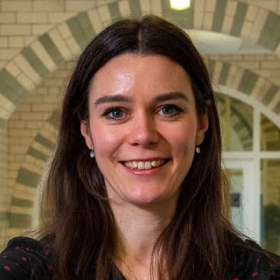There is an unofficial statistic that only about one or two in 10 grant applications get funded. So, for all the effort you put in you may only get a very small return rate. Sounds like an incredibly dire start to this blog, but don’t worry, it doesn’t end that way!
A few months ago, I wrote a blog about it being the season of grant application writing, and the season truly doesn’t seem to stop. Every month or so there seems to be a new, often very short notice, call from funding bodies, such as the NIHR or the ESRC or MRC, although the ESRC and MRC usually have longer turnaround times. And then, throw in the mix some very random and sudden funding calls that many of the fellow dementia researchers reading this blog may recognise and possibly sigh a little about, an application window of 1 week. Yes, 1 week!
Of course, it is important to prioritise the calls that we want to go for, but sometimes certain opportunities seem too good to miss, especially when they have a specific focus of a funding call, say Improving independence in Dementia, which I just more or less made up. These calls to me seem a much better time investment than very broad calls of repeated funding streams. That’s because in those broader calls, you are in competition with applications that can be completely outside your area of expertise, and for some reason that topic area may be prioritised by the panel, but not yours.
As I mentioned, there have been a lot of funding applications happening recently, and I think the important thing is to re-cycle (or adapt and improve) rejected grant applications for a next funding call. After all, we have done all the public involvement work. We have done the thinking, I have brought together a team of different professional and lived experts, we are all signed up to the idea. And most importantly, we, or mostly the PI really, have drafted the application, done the budget, and all the other documents that go with it.
Whilst it is always a disappointment, especially when the PI puts in so many hours of work, including weekends, to get those grant applications up to shape, it is a learning for an academic to not be too disheartened. It’s about taking on the reviewer/panel comments (which ideally really should be send immediately and not a few weeks or a couple of months later), regrouping and adapting your application with your team, and then resubmit. Similar to a paper submission somewhat. Except that a grant application is usually a much bigger thing with all the attachments, costings, guidelines, and not to mention the careful conceptualisation and active involvement of the public, gathering a team, and multiple iterations of the case for support.
But hey, nothing that’s easy has ever been worthwhile!

Dr Clarissa Giebel
Author
Dr Clarissa Giebel [1] is a Research Fellow at the University of Liverpool and NIHR ARC North West Coast. Clarissa has been working in dementia care research for over 10 years focusing her research on helping people with dementia to live at home independently and well for longer, addressing inequalities that people with dementia and carers can face. Outside of her day work, Clarissa has also organised a local dementia network – the Liverpool Dementia & Ageing Research Forum, and has recently started her own podcast called the Ageing Scientist [2].